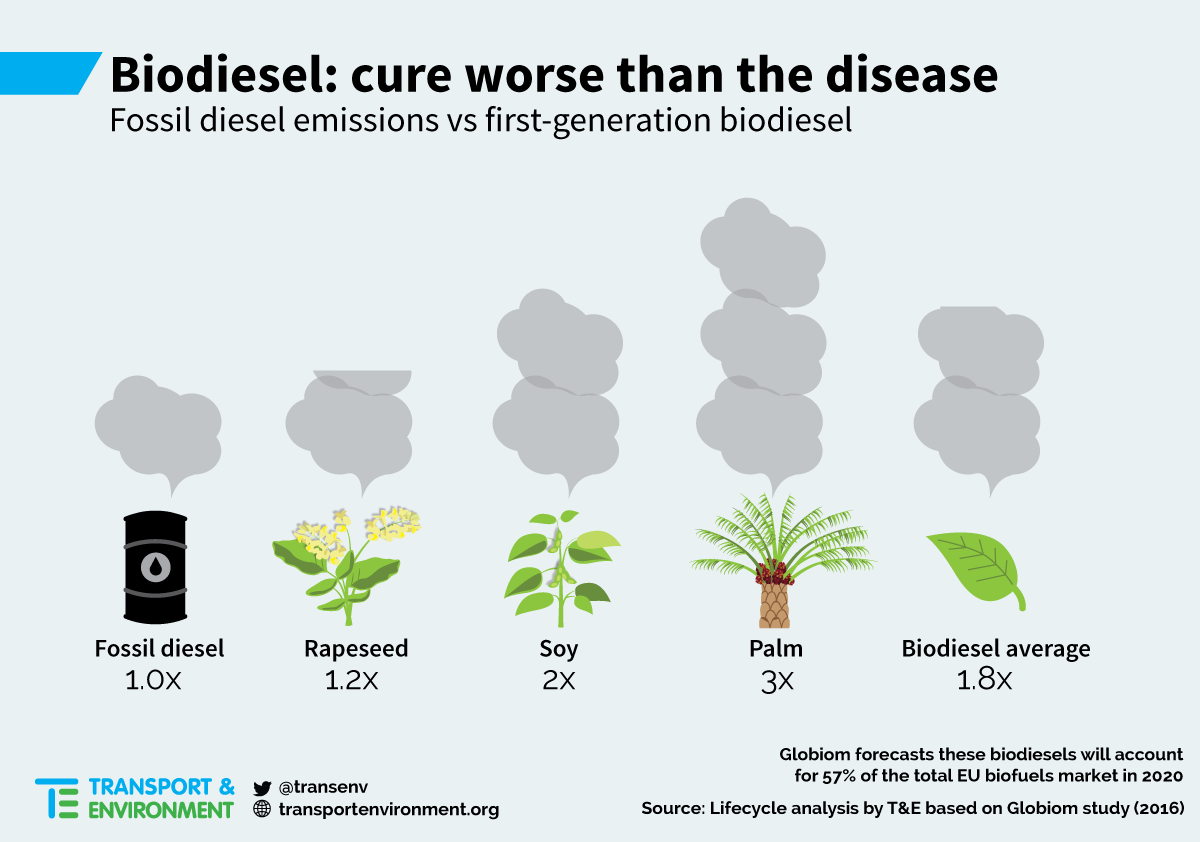
Interested in this kind of news?
Receive them directly in your inbox. Delivered once a week.
Cristina Mestre, biofuels officer of Transport & Environment (T&E), said: “We welcome the European Parliament’s call to end support for biodiesel made from vegetable oils. These fuels have higher emissions than regular diesel and cause deforestation and peatland drainage. Truly sustainable advanced biofuels can only have a chance if the European Commission stops promoting cheap, polluting biodiesel.”
On average, biodiesel from virgin vegetable oil leads to around 80% higher emissions than the fossil diesel it replaces. This is based on biodiesel’s lifecycle emissions, which include land-use change emissions (ILUC). ILUC occurs when new or existing cropland is used for biofuel feedstock production, thereby causing carbon sinks to be opened. In 2015, biodiesel was the most popular biofuel in Europe with a market share of 80%, mainly made from palm oil, rapeseed and soy.
Of all the sources of biofuel for transport, palm oil has the highest GHG emissions – 303% of the emissions of fossil diesel. Expansion of palm production incentivised by usage of this oil for biodiesel causes deforestation and peatland drainage, mainly in Southeast Asia but also in Latin America and Africa. Motorists are the top consumers of palm oil in Europe, according to figures obtained by T&E. In 2015, 46% of all the palm oil used in Europe ended up in the tanks of cars and trucks.
Cristina Mestre concluded: “Vegetable oils such as palm oil, rapeseed and soy work as substitutes for each other. Banning palm oil in biodiesel is not the solution because it will simply be replaced by rapeseed or soy which also produce higher emissions than regular diesel because of indirect impacts, The only real solution is to stop all incentives that artificially create demand for vegetable oils in the transport sector.”


